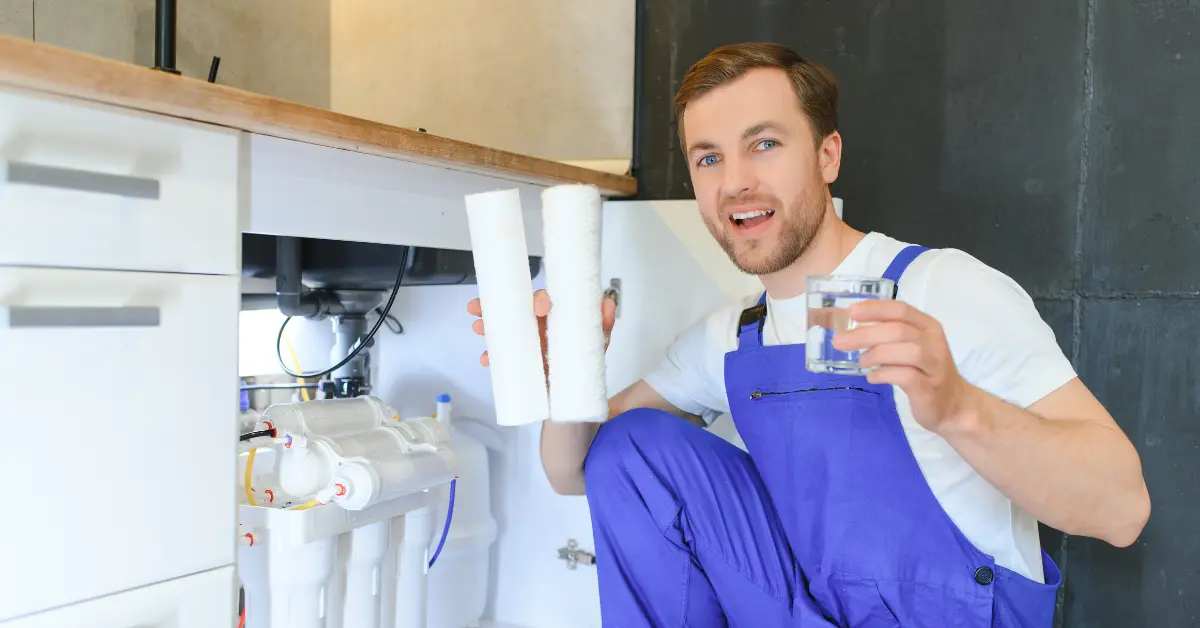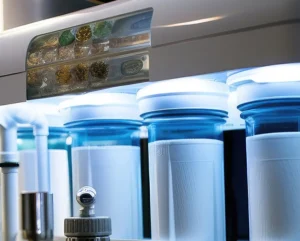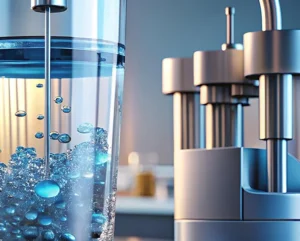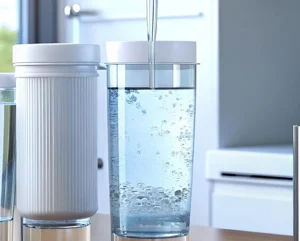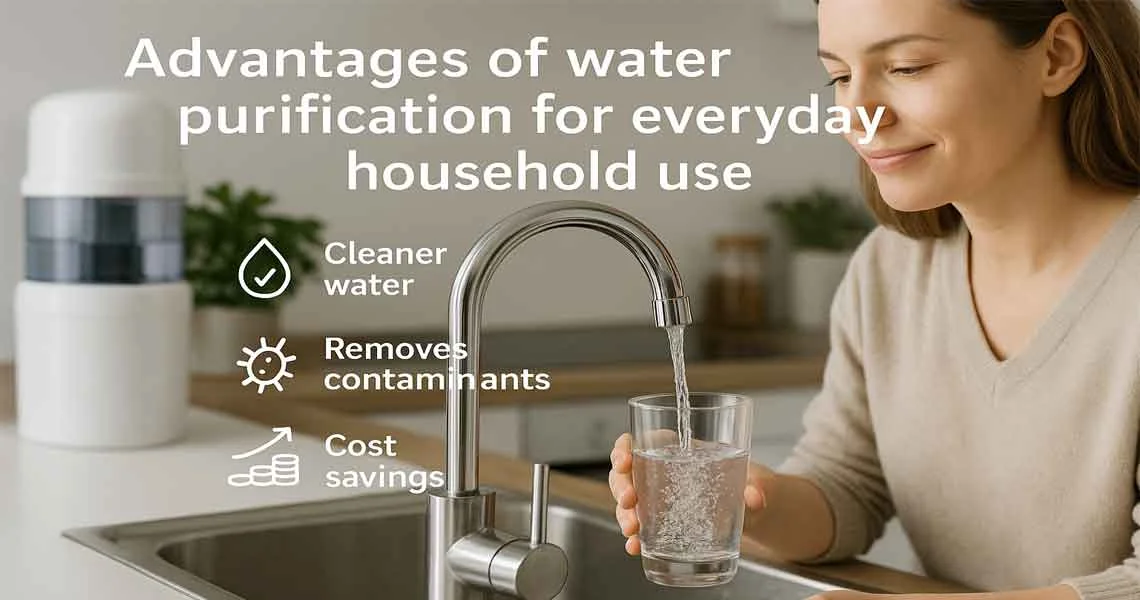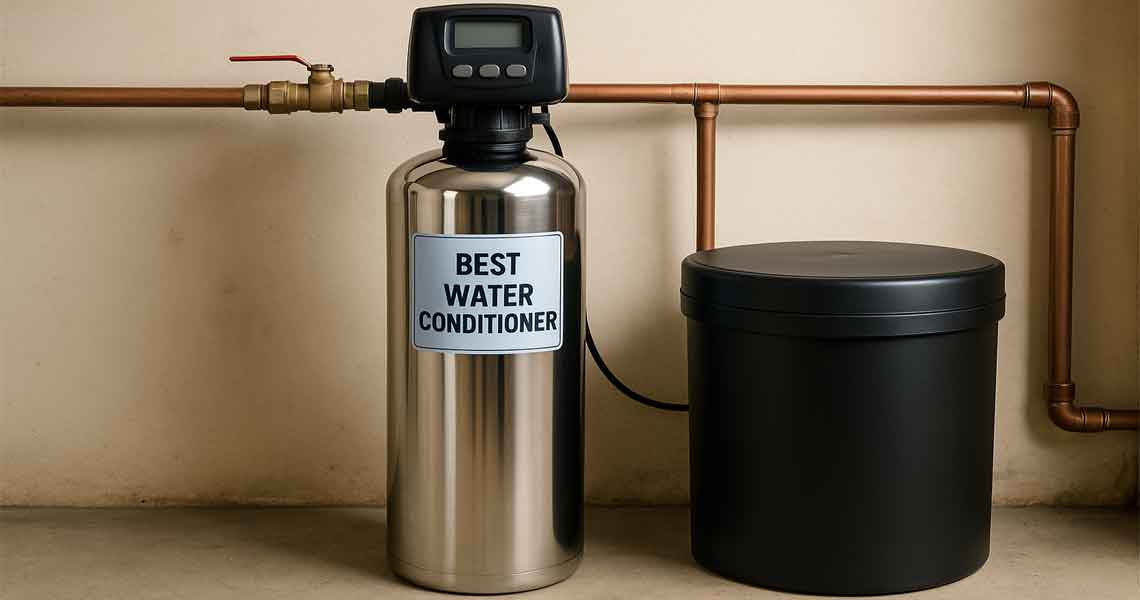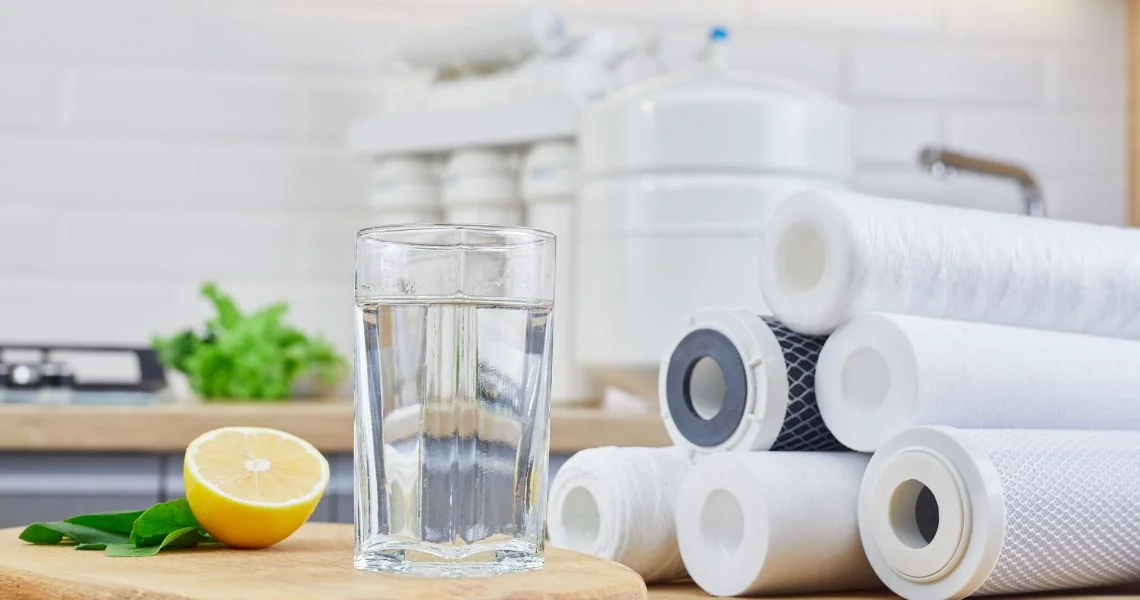Clean water is a very critical resource in the health and general well-being of human beings. However, tap water often contains elements that are not healthy for the body to take in regularly. This is where a home water filtration system plays a crucial role. They ensure every drop of water in your house is cleaner and bacteria-free. Selecting the best whole-home water filtration system is vital for your household’s well-being. Here, we will discuss things to consider when considering a whole house water filter, though we have listed our best picks.
Why Invest in a Whole Home Water Filtration System?
A whole home water filtration system provides several advantages:
- Comprehensive Protection: Filters out chemical lapses such as chlorine, lead, and sediment from all the water sources.
- Improved Taste and Odor: Improves the taste of water used for cooking and drinking.
- Health Benefits: Minimizes contact with toxic gases, reducing your family’s chances of falling ill.
- Cost-Effective: It is cost-effective over time to avoid purchasing bottled water and to prevent frequent plumbing problems due to hard water deposits.
For residents looking for a water filtration system Pensacola FL, it is essential to choose a high-quality system that ensures clean and safe drinking water, especially given the region’s water conditions.
Key Features to Consider
When searching for the best whole-home water filtration system, consider the following features:
Type of Filtration
Different systems use various filtration methods:
- Activated Carbon Filters are ideal for chlorine, VOC, and general bad-smell wash.
- Reverse Osmosis Systems are highly recommended for filtering dissolved solids, heavy metals, and bacteria.
- UV Filters eliminate bacteria and viruses without the usage of chemicals.
- Whole House Systems uses different technologies to cope with different contaminants.
Contaminant Removal Capabilities
It is also important to look at the system’s capacity to eliminate certain contaminants from the water. Search for NSF International or the Water Quality Association (WQA) approvals. This verifies that the system meets the required industry standard.
Flow Rate
The flow rate defines the quantity of water that the system can treat in a given amount of time. However, choose a system that will provide sufficient water for your entire household while maintaining sufficient pressure.
Maintenance Requirements
They also indicated that some systems need constant maintenance, such as filter changes. Choose a system that you will maintain and that you can afford.
Size and Installation
You also need to determine the size of the unit and whether it will fit your home’s plumbing system. Some systems require professional installation, while others can be installed by the homeowner.
Top Recommendations for Whole Home Water Filtration Systems
Here are a few options to consider when looking for the best whole house water filtration system:
- Wellness Water Purification System: Wellness Water Purification provides the ultimate whole house water filtration system that filters out pollutants and adds beneficial minerals back into the water. It also removes hardness and increases the pH of the water, making it safe for drinking, cooking, and even bathing.
- Aquasana Rhino Series: One of the popular types is the Aquasana Rhino series. It uses the activated carbon and the UV filter to give a broad-spectrum treatment of the filtration of contaminants. Its flow rate is up to 7 gallons per minute and thus makes it suitable for large households.
- Home Master Whole House System: This system employs multi-stage filtration to help remove chlorine, heavy metals, and sediments from the water. It is low-maintenance and very durable, which makes it suitable for long-term use.
- Springwell Whole House Water Filter: SpringWell’s system has several components that make the company efficient and effective. It utilizes a carbon filtration system and offers a 6-month money-back guarantee to customers.
- iSpring Whole House Water Filtration System: The iSpring is an affordable system, but it is not cheap overall. It employs a three-tier filtration system to ensure that you have a clean water supply throughout your house.
Installation and Maintenance
After selecting the right whole-home water filtration system, the next thing you should think about is how the system will be installed. The installation is mostly necessary where water enters the house. A professional setup can only be set up when someone hires a professional.
Maintenance Tips
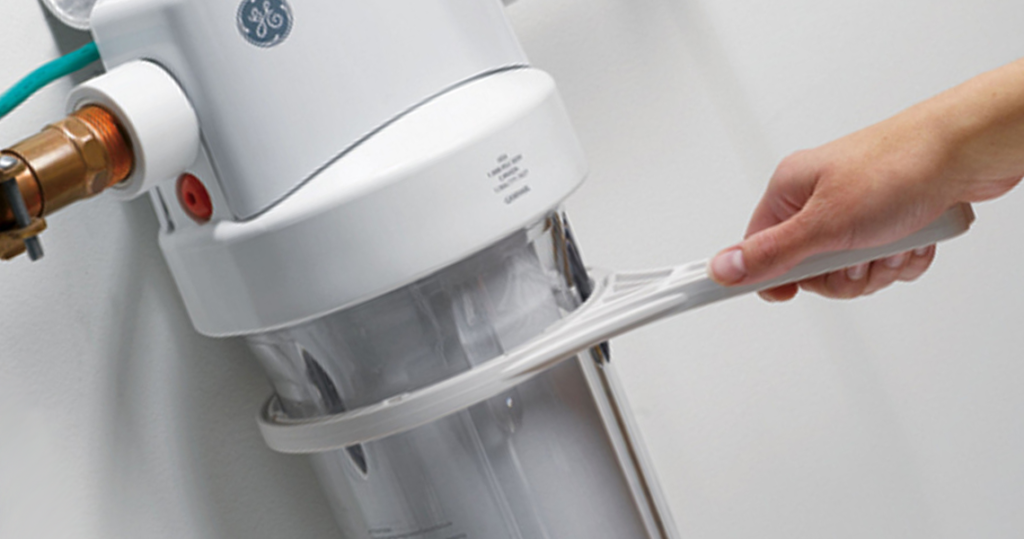
- Regularly Check Filters: Check on the filters for any signs of tear and replace them if necessary.
- Clean the System: It is imperative to follow the manufacturer’s recommendations on cleaning to enhance performance.
- Test Your Water: It is advisable to periodically check your water quality to determine whether the system is working properly.
Understanding Your Water Quality
Whenever choosing the most appropriate whole-home water filtration system, water quality needs to be determined first. The water test aims to determine certain types of water contaminants in your water supply so that you can decide on the right system for you. Chemicals commonly found in household water include chlorine, lead, bacteria, pesticides, and calcium and magnesium, among others.
Additionally, many homeowners experience water filtration problems when choosing the wrong system that does not target their specific water issues, leading to inefficiency and continued contamination.
There are testing kits available for home use, or you can find a professional company to do the tests. These tests give information on pH, acqu, and other pollutants in the water; they are also used to test water hardness. Water quality can also be obtained from other local water utilities that release their annual water quality report.
Understanding what contaminants are present in water allows one to decide which water filtration system is most suitable to deal with those problems. For instance, if your water source is chlorinated or you obtain water with a foul smell, you need an activated carbon filter.
In this case, if there is an issue with some heavy metals such as lead, then systems equipped with reverse osmosis are ideal. Knowing your water quality helps you select your water treatment system and significantly improves your family’s health.
The Environmental Impact of Whole Home Filtration
A whole-home water filtration system not only rules the health parameters; it is also an environmentally friendly choice. Conventional ways of using bottled water result in a high accumulation of plastic bottles, negatively impacting the environment. When you choose a filtration system, you eliminate the need for bottled water and, as a result, decrease your carbon footprint.
A whole-home filtration system enables one to have purified water from the tap without the need to buy bottled water, thus reducing the use of plastics. These systems also enhance the rates of water utilization, thus protecting water resources. It is even more crucial, especially in regions where water rationing has been known or areas that experience dry weather.
In addition, most filtration mechanisms minimize the levels of hazardous compounds, which, if discharged into the sewerage system, may adversely affect water resources. Clean water saves the environment, and we should ensure that our water is clean to help the environment’s health. Such commitment to sustainability serves your household and contributes to other overall endeavors.

Cost-Effectiveness of Whole Home Water Filtration Systems
Therefore, when selecting a whole-home water filtration system, one needs to consider the long-term cost implications. The cost might seem quite steep to start with, but in the long run, the savings, not to mention the improvement in people’s health, make the money well spent. Additionally, if your household experiences issues with hard water, investing in the best water softener alongside a filtration system can provide a complete solution for water purification and softening.
Bottled water might be more costly in the long run than tap water, especially when purchasing large quantities for a family. However, in addition to the initial cost of the whole-home system, there is no longer a need to spend money on bottled water, which is a great saving.
Moreover, these systems are not as demanding in terms of maintenance as one might think. Most models have filters that last a very long time and must be replaced only once a year or even less if the water usage is high.
Furthermore, a filtration system saves your pipes and fixtures from the damaging effects of mineral deposits that are destructive to your plumbing and appliances.
Purchasing the best whole-home water filtration system has a positive impact on the overall quality of water in your home while reducing recurrent costs on comprehensive repair and maintenance. This also enhances the quality of your water and sanitation, making it safe for your family to drink and economically feasible.
Conclusion
Installing a whole-home water filtration system is beneficial if you want a safe and healthy water supply in your home. The best system enhances the taste of water and helps you and your family lead healthy lives.
Here are the key features, benefits, and options to help you decide. Through the Wellness Water Purification system, you can get a solution encompassing a water purification system, softening and enriching the water.
Are you ready to get new, high-quality water in your home? Schedule an appointment with Wellness Water Purification now and learn more about our advanced whole-home system. Get safe, quality water for you and your family! So don’t wait—get a Health Investment for the future now! Contact us now.
Our Products
-
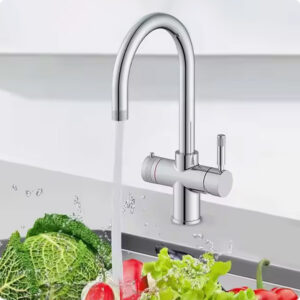 Rated 0 out of 5$1,499.00Select options This product has multiple variants. The options may be chosen on the product page
Rated 0 out of 5$1,499.00Select options This product has multiple variants. The options may be chosen on the product page
Frequently Asked Questions (FAQs)
1. What's the best whole home water filtration system for my household?
The best whole home water filtration system varies based on your water source and your contaminants of concern. Multi-stage systems incorporating carbon, UV, and reverse osmosis are the most effective for overall protection.
2. What are some of the most common water filtration issues homeowners encounter?
Some common water filtration problems include low flow rate, frequent filter replacement, choosing the wrong system for your water type, and improper installation. Testing your water first helps avoid these issues.
3. Is there a specific water filtration system recommended for Florida homes?
Yes, with Florida’s hard water, the best water softener for Florida is usually combined with a whole house water filter to address both minerals and chemical pollutants for enhanced protection and flavor.
4. What is the best whole house water filtration system of 2024?
The top choices for the best whole house water filtration system of 2024 are Wellness Water Purification, Aquasana Rhino, SpringWell, and Home Master—each providing different multi-stage solutions.
5. Do I absolutely need a water softener in Florida?
Yes, Florida does boast some of the toughest water in the U.S. If you’re seeing limescale, dry skin, or dingy laundry, then do you need a water softener in Florida is a resounding yes.
6. What is a whole home water filtration system?
A whole home water filtration system is a device that is fixed at the main water line coming into your house (also called point-of-entry). Such a system purifies water directly from the outlets, showers, and washing machines, that is, water of the same quality flows everywhere in the house.
7. How do whole home water filtration systems work?
Such devices function by channeling water coming from the outside through different purification stages. Typical stages comprise:
- Sediment filters that eliminate dirt, sand, and particles.
- Carbon filters that lower chlorine, odors, and chemicals.
- An optional ultraviolet light that sanitizes bacteria and viruses.
Each of these layers makes it possible for the user to get clean and fresh water in the whole house.


